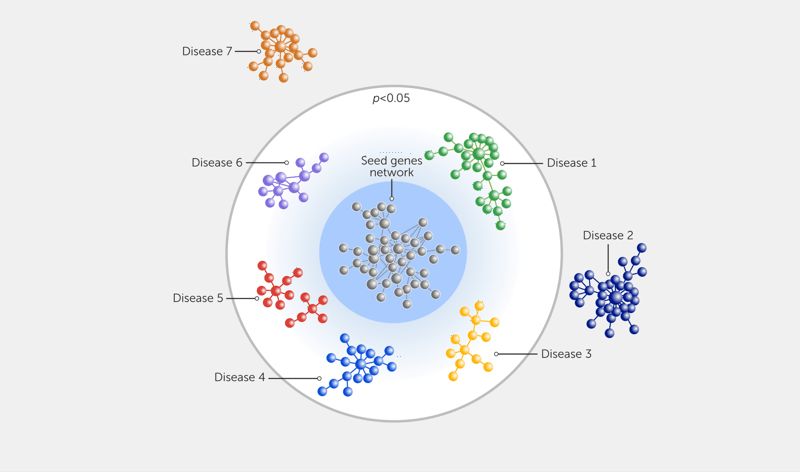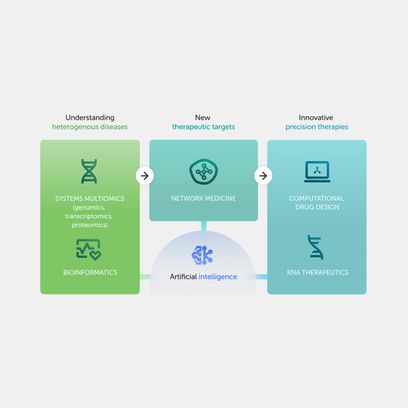
Frontiers in Science Lead Article
Published on 07 Oct 2025
Precision cardiovascular medicine: shifting the innovation paradigm
- 99,023 views
- 7 citations


Frontiers in Science Lead Article
Published on 07 Oct 2025

Experts delved into precision cardiovascular medicine at a virtual Frontiers Forum Deep Dive session on 4 November 2025.

Prof Valentin Fuster, Prof Filip K. Swirski, and Prof Girish Nadkarni (Mount Sinai Health System, USA)—The future of cardiovascular medicine lies in integrating population-based and precision interventions that reduce global disease burden.

Dr Siyeon Rhee and Prof Joseph C. Wu (Stanford University School of Medicine, USA)—Precision cardiovascular medicine requires leveraging patient variability as an opportunity, not an obstacle, while embedding equity in both data collection and clinical implementation.

Prof Rainer Schulz (Justus-Liebig University Giessen, Germany)—Stronger basic and translational science—including improved disease models, identification of cellular therapeutic targets, and safer delivery methods—is vital for the success of precision cardiovascular medicine.

Prof Hugo ten Cate (Maastricht University Medical Center, the Netherlands)—Deep patient risk profiling can enable precision medicine approaches that safely match next-generation antithrombotic treatments to the right patients.

Prof Amam Mbakwem (World Heart Federation, Nigeria)—Cardiovascular health for all demands national action plans that integrate precision approaches based on globally representative research—enabled by leadership committed to equitable access and context-relevant implementation.
Heterogeneity in the complex pathobiology and presentation of cardiovascular diseases (CVDs)—the leading cause of death globally—limits the effectiveness of conventional “one-size-fits-all” therapies.
Integrative systems approaches, which involve unbiased omics analyses (especially proteomics and single-cell analyses), bioinformatics, and network science, now offer the potential for a precision medicine innovation paradigm to tackle CVDs.
Artificial intelligence is driving new opportunities in patient profiling and computational precision drug design and development.
Various RNA therapeutics in development offer promise for effective precision therapy and could help address conventional drug development obstacles, such as cost and time.
Interdisciplinary and intersectoral collaboration throughout the research and innovation pathway, underpinned by global health policy leadership, is necessary to implement a precision cardiovascular medicine paradigm.

A summary of the lead article in a Q&A format, with infographics and a video.

A version of the lead article written for—and peer reviewed by—kids aged 8-15 years.

AI, omics, and systems biology can now help scientists design targeted drugs for cardiovascular disease pathways once thought “untreatable.” (Photos: Prof Masanori Aikawa, Prof Joseph Loscalzo, and Dr Sarvesh Chelvanambi, Brigham and Women's Hospital and Harvard Medical School, USA).

Researchers used data-driven tools to target “undruggable” disease mechanisms.

Personalized medicine for cardiovascular disease (CVD) could receive a huge boost through the application of the latest biomedical technologies, researchers report, but global leadership and partnership across many branches of healthcare are needed.

Cardiovascular disease is the leading cause of death worldwide. To fight it effectively, we need to rethink how we discover, develop, and test new treatments.
Follow the science, follow Frontiers in Science